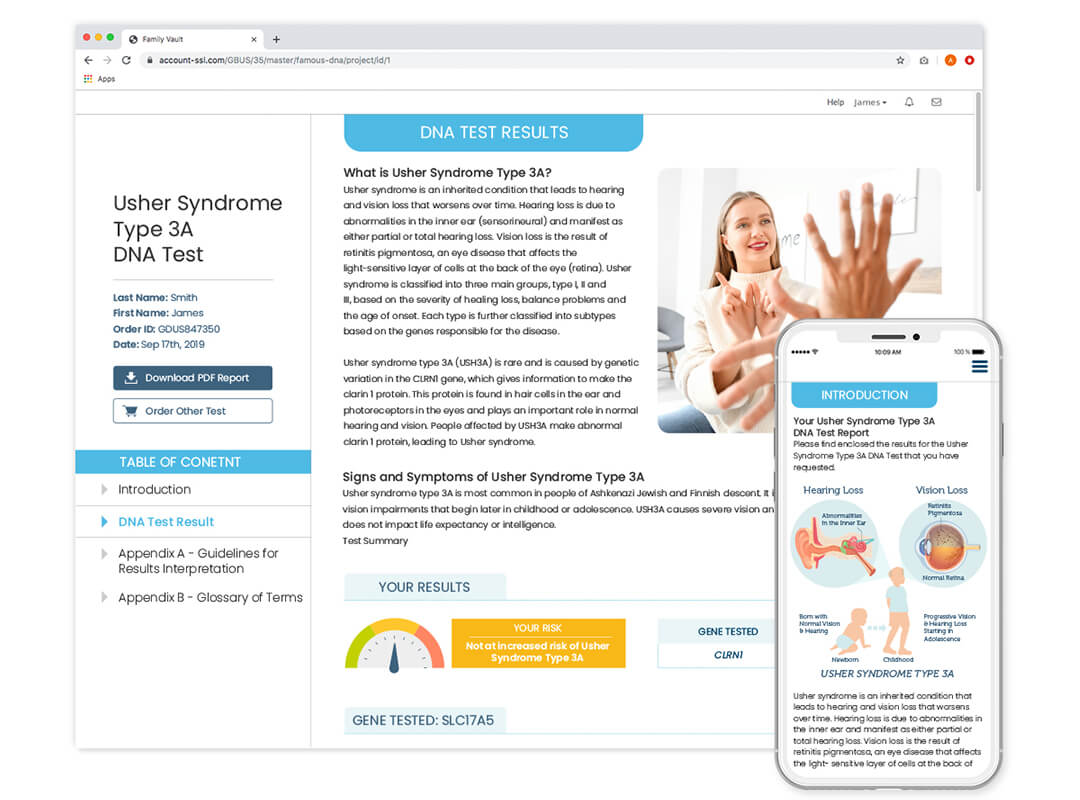Usher Syndrome Type 3A DNA Test
Are you a genetic carrier for Usher syndrome type 3A? Find out with this DNA Test.
- Detects a CLRN1 gene variant which causes Usher syndrome type 3A
- Characteristic symptoms include hearing and vision loss
- Carrier screening test intended for couples who are planning to become pregnant
- 100% private and confidential online results
Already have DNA markers? Sign in and upload your data to view results.
Need to take the DNA Test? Order our easy-to-use swab kit.





